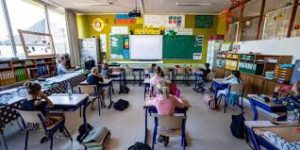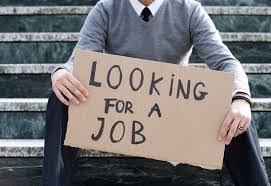- One direction - 16th July 2020
- What’s in a word? - 11th July 2020
- Time not on your side - 22nd June 2020

Our correspondent The Commentator laments the effect of the lockdown on young people in Wales.
Young people are being hit disproportionately by the lockdown.
This basic truth has been thrown into stark relief by the fact that schools in Wales are due to reopen next week.

Meanwhile the UK Government has confirmed that primary pupils in England would not come back to school until September, meaning they will have been out of the classroom for six months.
The issue is especially ironic because young people are less at risk of catching coronavirus (Covid-19) seriously than other groups, unless they have underlying health conditions.

School pupils sitting important public examinations are finding their education disrupted and the road to further or higher education looking more difficult than ever.
For students too it is a grim future.
They usually supplement their finances by working part-time in a bar or cafe, and they’re the first to be laid off when a crisis hits.

Those graduating this summer may find it hard to find work after a recession, and being employed by companies who’ve taken on massive debts.

Graduate job openings have fallen by 77 per cent since the beginning of the year, from nearly 15,000 to just over 3,000.
There are now 100 graduates vying for each role, and average graduate salaries have slipped by 3.3 per cent from £24,000 last year to £23,200.
Research shows that students who graduate in a recession are 20 per cent less likely to be in work after a year than if they had entered the workforce during more normal times.

Universities are also facing enormous challenges, and a recent report has described the problems as “unimaginable”.
It added: “For the higher education (HE) sector in Wales, the pandemic will have immense financial consequences. Welsh universities have already suffered very significant revenue losses…”.
Wales, of course, is not unique in this regard – they are problems affecting the rest of the world.

But they are, perhaps, issues that affect Wales more than most countries, because education has been particularly prized here, and always seen as a passport to future success.
The figure of the Welsh teacher in an English school has become a cliche.


The story of one young person (now self-isolating at home with parents) is typical: “I was going to finish year 11 and do my GCSEs, then I was going to have a really long summer with my friends, hopefully go abroad – have that summer that everyone has.
“I’m sad about missing out on the stuff that everyone normally gets to do. I didn’t have a proper leavers’ assembly, I didn’t get to properly say bye.

“I guess you’ve got the hope that the future is not confirmed yet, you don’t know how long it’s going to last – but that’s also what’s confusing about it all.
“It’s the knowledge that I’m losing my teenage years.”
The First Minister of Wales (FMW) Mark Drakeford has been pressed by opposition politicians in the Senedd/Welsh Parliament (WP) on just these points.
Mr Drakeford responded in the WP: “Even though young people are less susceptible to the virus and less susceptible to its more difficult impacts, (research) showed that if you put young people back into the workplace before other people, hundreds more young people would die”.

The coronavirus has affected all our lives, but there is a lot of evidence that young people in particular are struggling.
Exams that teenagers have been told will shape the rest of their lives, have been cancelled, and future plans – for work, travel or further study – cast into uncertainty.


Incipient independence has been rudely interrupted.
The problems for those graduating from Higher Education (HE) institutions come as youngsters are supposed to be starting out on the great adventure of life.
In the month before the lockdown was announced, on March 23, positive Welsh student numbers were announced.
Amanda Wilkinson, Director of Universities Wales, said: “We are delighted to see a 46 per cent increase in the number of first year students enrolling on part-time undergraduate degrees in Wales.
“This increase demonstrates the positive impact of … recommendations which are supporting more people of all ages and backgrounds to study higher education.

“We are also pleased to see that, despite a sustained demographic dip in the number of 18 year olds, the number of students enrolling at universities in Wales increased this year and with a higher percentage increase than the UK as a whole.”
A few weeks after those words were uttered the picture looks very different.
Apart from young people due to be heading to university or graduating this summer, around a quarter of 18 to 24-year-olds have also been furloughed – meaning they do not work but their firms keep them on their books and the government covers 80 per cent of their wages.

A further nine per cent have lost their jobs altogether – the highest figure out of all age groups.
More than a third of young people expect to be made redundant or to lose pay during the pandemic, while a quarter have already had a wage cut, according to the comparison website Compare the Market, compared with 12 per cent of the whole working-age population.
A further 18 per cent of 18 to 24-year-olds expect their wages to drop or to be forced to work reduced hours.
 Service industries that traditionally employ younger staff such as pubs, restaurants and leisure centres have remained shut throughout the lockdown, as have many shops, and they will probably be the last ones to be reopened.
Service industries that traditionally employ younger staff such as pubs, restaurants and leisure centres have remained shut throughout the lockdown, as have many shops, and they will probably be the last ones to be reopened.
For everyone this has been a difficult time, but for young people it is especially troubling.
Tomorrow – more worrying revelations about the man demanding money from the public to start a new media service in Wales.
The memories of our Editor Phil Parry’s extraordinary 36-year award-winning career in journalism as he was gripped by the rare neurological disabling condition Hereditary Spastic Paraplegia (HSP), have been released in a major book ‘A GOOD STORY’. Order the book now!
If you need something to keep the children entertained during these uncertain times (in Welsh) try Ffwlbart Ffred about the amusing stories of Ffred and his pet.


